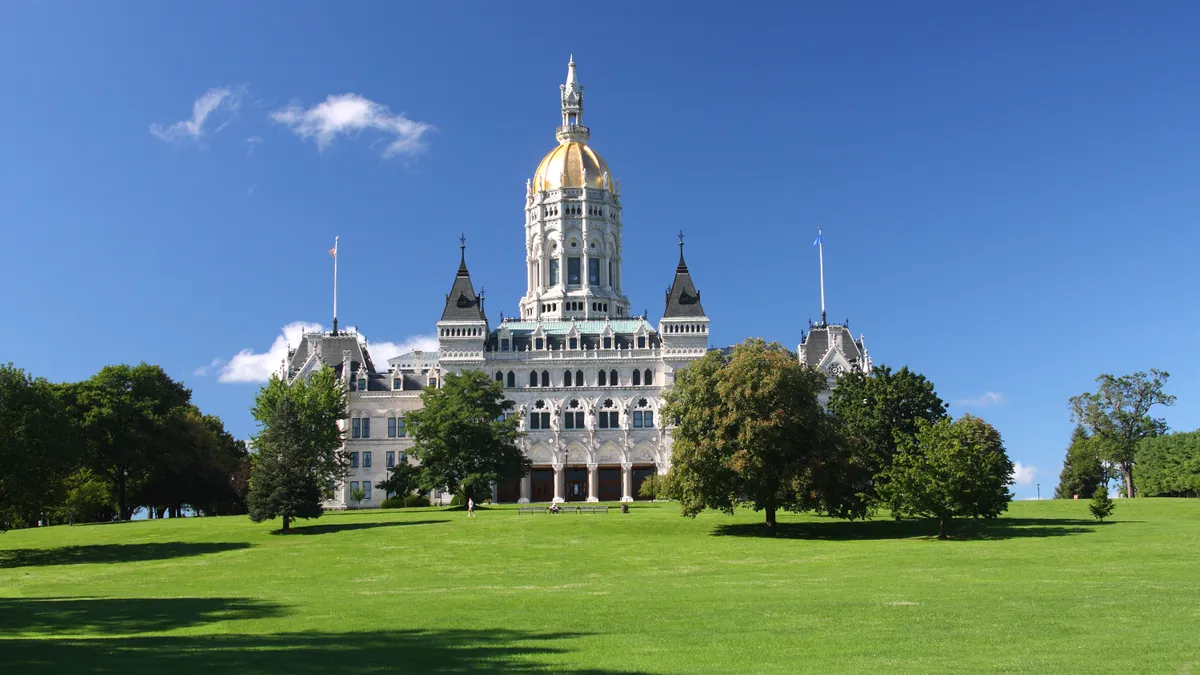Dive Brief:
- Connecticut lawmakers advanced a bill Thursday that would ban the state's public and private colleges from using legacy admissions to give preferential treatment to applicants related to alumni.
- Lawmakers on the state's higher education committee also added a ban on policies that give an admissions advantage to applicants related to college donors.
- If passed, Connecticut could become the first state to ban legacy preferences at both public and private higher education institutions.
Dive Insight:
Legacy admissions have come under increased scrutiny since the U.S. Supreme Court ruled against race-conscious admissions last year. Critics of legacy preferences say they hurt already disadvantaged students, as research shows these policies favor applicants who are White and wealthy.
Colorado became the first state to prohibit legacy admissions at public colleges in 2021.
Last week, a newly signed Virginia law went a step further, banning public colleges from using policies favoring legacy applicants or those related to donors.
Connecticut state Sen. Derek Slap, co-chair of the Legislature’s higher ed committee, cited Virginia as an inspiration for adding the donor admissions ban to Connecticut's bill.
The proposal could prove to be a test case for bans against legacy preferences, as Connecticut is home to several institutions that have publicly opposed the measure.
"Every time I look at this issue, I just come away with the thought that legacy admission preferences are just plain wrong," state Rep. Gregg Haddad, co-chair of the Higher Education and Employment Advancement Committee, said during Thursday's meeting.
Haddad said Connecticut colleges should reflect the values of the state — including meritocracy — if they want to maintain their nonprofit status.
Connecticut previously attempted to ban legacy admissions in 2022 but lawmakers got significant pushback from university leaders.
Jeremiah Quinlan, dean of undergraduate admissions and financial aid at Yale University, said in written testimony this year that Connecticut lawmakers should not interfere with its admissions decisions.
"The state should not dictate how colleges and universities make admissions decisions, just as the state should not dictate whom we hire as faculty or what we teach in the curriculum," Quinlan said.
But Slap pushed back on that argument Thursday.
"The reality is, they do not already have that institutional freedom," he said, citing the U.S. Supreme Court's ban against race-conscious admissions.
Under the proposed legislation, colleges would still be able to ask applicants about their legacy status, but they could use that information only to track student demographics, Slap said.
Legacy preferences are also under fire at the federal level. A bipartisan bill introduced in the U.S. Senate in November would amend the Higher Education Act to ban legacy preferences among accredited institutions..
The U.S. Department of Education is investigating if legacy preferences at some highly selective colleges, including Harvard University, are tantamount to racial discrimination.
The agency also published legacy admissions data last year, finding that almost 600 colleges use these practices. However, colleges self-reported on their practices, leaving room for error.














